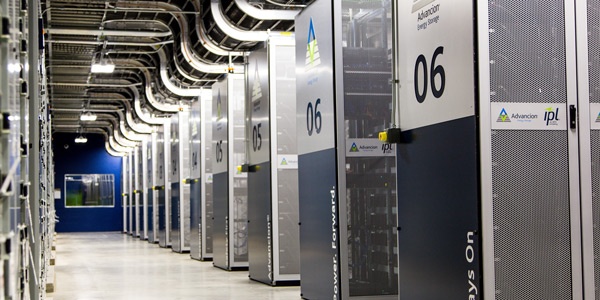By Amanda Durish Cook
FERC ruled last week that MISO’s Tariff unreasonably limits energy storage, directing the RTO to craft more inclusive Tariff language within 60 days.
The commission concluded Feb. 1 that MISO’s Tariff “unnecessarily restricts competition by preventing electric storage resources from providing all the services that they are technically capable of providing” (EL17-8).
While MISO includes stored energy resources in its regulation market, it does not allow them to participate in the capacity, energy, ramp capability and contingency reserve markets.
The order came in response to Indianapolis Power and Light’s Oct. 21 complaint that the 20-MW battery at its Harding Street Station was capable of performing as a load-modifying resource but that the MISO Tariff prevented its participation. The battery can deliver 5 MW for four continuous hours, according to IPL.
MISO has until the beginning of April to make Tariff revisions that “accommodate the participation of all electric storage resources, regardless of the technology, in all MISO markets that they are technically capable of participating in, taking into account their unique physical and operational characteristics,” FERC said.
The RTO had asked for IPL’s complaint to be dismissed, saying it was working with stakeholders on new storage definitions. It also cited FERC’s Nov. 15 rulemaking that would require RTOs to remove barriers to entry (RM16-23, AD16-20). (See MISO Asks FERC to Dismiss IPL Storage Complaint.)
Storage NOPR
FERC said that while the commission’s final rule resulting from the Notice of Proposed Rulemaking could address IPL’s concerns, the company had nevertheless met its burden under Section 206 of the Federal Power Act to demonstrate that the existing Tariff is unjust. The commission also said the final rule from its storage NOPR could take precedence over MISO’s compliance filing.
“In the event that MISO’s Tariff revisions conflict with the required tariff revisions in any final rule resulting from the storage NOPR, MISO may be required to adjust its Tariff to align with the commission’s determinations in that final rule,” FERC explained.
The commission did not find merit in two other grievances contained in IPL’s complaint. The company argued that MISO should have a compensation mechanism for automatic frequency control; the company also claimed that MISO’s dispatch protocols are tailored to flywheel storage only. (See IPL Asks FERC to Force Update to MISO Storage Rules.)
Although FERC said it was aware of the Eastern Interconnection’s declining primary frequency response, it agreed with MISO that it is currently sufficient to meet reliability under NERC’s BAL-003-1 standard.
“We agree with Indianapolis Power that primary frequency response is a critical requirement for interconnected grid operations, and that the Eastern Interconnection has experienced a decline of primary frequency response as compared to historic values,” the commission said. It also said MISO was not discriminating against battery storage, as all other providers of primary frequency response are likewise uncompensated. IPL’s storage facility has been providing MISO with primary frequency response since May.
IPL claimed that MISO’s current storage resource offer parameters would significantly shorten its battery’s life because it would result in a “dispatch of its battery at half-capacity continuously for one hour and then send a negative signal for the following hour to charge.”
But the commission said IPL failed to prove that MISO’s dispatch instructions would harm the battery, saying it “failed to cite to any Tariff provisions or business practice manuals that support this claim.”
FERC said MISO has previously informed IPL that while the Tariff requires a regulation resource “to be available for 60 minutes to provide regulation service, the actual market clearing and deployment will not cause the resource to be charged for one hour and then be discharged for one hour.”
IPL Responds
Lin Franks, IPL’s senior strategist for RTO, FERC and compliance initiatives, said that while the commission’s order did not grant the company’s request to be paid for “essential” primary frequency response, the commission has already made frequency response service a condition of interconnection with the grid in last year’s RM16-6 rulemaking. Franks said she expected additional industry discussion on the topic as resource mixes shift further and battery benefits become more “universally understood.”
“Our hope is to bring awareness of both the benefits of lithium ion battery storage and [its] regulatory challenges,” she said.
Franks said IPL will continue to promote the benefits of battery storage. “Technological advances in this field happen rapidly [and] understanding benefits and the regulatory changes needed to realize all these benefits can take years,” she added.





